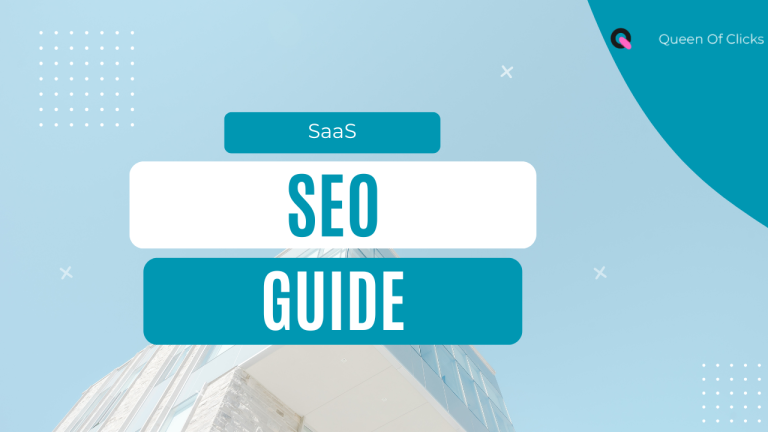SEO Deliverables for SaaS Companies
SEO deliverables are the concrete outputs that show exactly what work is being done to improve your website’s visibility, traffic quality, and conversions. Think of them as the “proof of work” behind a SaaS SEO strategy, the audits, keyword research, technical fixes, content updates, link-building actions, and performance reports that move your site forward. Instead of vague promises, deliverables make SEO specific and trackable. They outline what will be completed, why it matters, and how each task contributes to long-term growth.
Key Takeaways
- Deliver a clear discovery and planning phase to baseline current performance.
- Prioritize on-page and technical work so every change supports conversions.
- Link content to product stages to improve evaluation and user education.
- Combine speed, mobile, internal links, and structured data to lift CTR.
- Track rankings, traffic quality, and sign-ups with regular reporting and tests.
What Are SEO Deliverables
SEO deliverables are the tangible outputs your team or agency provides to improve a website’s visibility, traffic quality, and conversions. They translate strategy into action. Instead of vague promises, SEO deliverables outline exactly what will be done, when, and why it matters. For SaaS companies, investing in SEO is a must, as organic search drives over 50% of all website traffic.
These can include audits, SaaS keyword research, a structured roadmap, on-page updates, technical fixes, new content assets, link-building activities, and recurring reports that track performance.
For SaaS companies, SEO deliverables also map search intent to product use cases, ensure pages support trials and demos, and connect organic visibility to measurable business outcomes. Clear deliverables keep everyone aligned, set expectations, and make results predictable over time.
What SaaS Teams Should Expect From SEO Deliverables
A practical plan helps SaaS companies turn search interest into qualified trials. Teams should expect a clear roadmap, milestones, and a prioritized backlog that links visibility to trial and demo goals.
Aligning Visibility, Traffic Quality, And Revenue Goals
Set measurement beyond rankings: focus on pipeline contribution, activation metrics, and retention signals that matter to the business. Regular reporting should map traffic quality to sign-ups and product-qualified leads.
Core Service Types: On-Page, Off-Page, Technical, Local, Content
Typical packages bundle a SaaS SEO audit, a custom strategy, competitor analysis, analytics setup, and ongoing work across on-page, off-page, technical, and local areas. Full-service approaches integrate these groups so gains compound across search engines.
- Documented roadmap with impact vs. effort milestones.
- Cross-team planning so product and marketing prioritize use-case content and integrations.
- Competitive analysis and social media amplification to surface linkable angles fast.
- Proactive communication, risk logs, and testing plans to limit surprises.

Initial Setup And Website Quality Audit
Benchmarking the site: audits and performance checks expose the bottlenecks that block growth.
The setup phase produces a concise audit report that lists technical faults, low-value pages, top-ranking pages, and keyword gaps. This baseline makes progress measurable for the client and the team.
Comprehensive Site Audit: Crawlability, Indexing, Core Web Vitals
Core checks: crawl traps, indexation gaps, soft 404s, duplicate paths, and orphaned pages. Validate XML sitemaps, robots directives, canonical tags, and HTTPS status so search engines and Google search see a clean site.
Baseline Ranking And Traffic Benchmarking
Capture ranking snapshots and organic traffic segmentation. Link these to conversion attribution so every lift is measurable against the starting point.
Competitor And Keyword Gap Analysis
Map competitor content, backlinks, and internal linking. Run keyword research to assemble a prioritized gaps list for quick wins and strategic targets.
- Audit crawlability and indexation.
- Benchmark Core Web Vitals and page speed.
- Record rankings, traffic, and conversion baselines.
- Compile competitor and keyword gaps; capture current meta descriptions for CTR fixes.
| Audit Focus | Typical Findings | Impact | Priority |
| Crawl & Indexing | Orphan pages, soft 404s, sitemap gaps | Blocks discovery, lowers indexed pages | High |
| Core Web Vitals | Slow templates, CLS, large images | Hurts user experience and ranking | Medium |
| Keyword & Competitor | Uncovered keywords, weak content themes | Missed traffic and conversion opportunities | High |
| Meta & On-Page | Missing or vague meta descriptions | Lower CTR from search results | Medium |
Strategy And Roadmap For Search Growth
A staged strategy coordinates quick wins and long‑term work so gains compound over time. This plan turns audit findings into a prioritized sequence of optimizations, campaigns, and checkpoints.
Target Planning: Choose target keywords that map to specific buyer journeys. Assign each to an existing or new page and state the content depth needed to win against competitors.
Timing And Teams: Set timelines for technical fixes, on‑page rewrites, and new asset creation. Allocate responsibilities across in‑house and partner teams to keep throughput high.
- Translate audits into a phased roadmap: foundational fixes, quick wins, longer-horizon work.
- Define North Star metrics and leading indicators that pair traffic quality with conversion and activation metrics.
- Plan internal linking with hub-and-spoke clusters, breadcrumbs, and authority flows to support priority pages.
Include experiment plans for snippets and CTR levers where competition is tight. Maintain a transparent backlog with prioritization scores and scenario plans for CMS or dependency risks. Align success criteria to phases so early wins validate direction while deeper projects build lasting results.

On-Page Optimization Essentials
Optimizing each page’s surface elements can lift clicks and user engagement quickly. Focused page-level work helps search results better reflect your product value and user intent.
Title Tags And Meta Descriptions Tuned For CTR
Front-load primary keywords in title tags and keep them concise. Write meta descriptions that state a clear outcome and include semantic cues to improve snippet relevance.
Heading Structure, Readability, And Intent Match
Use a logical H1–H3 hierarchy that mirrors intent. Short headings and scannable sections help users and search engines parse the page faster.
URL Structure And Internal Linking For Discoverability
Normalize slugs to be short and readable. Strengthen internal links to route authority to hub pages using descriptive anchors.
Image Alt Text, Compression, And Accessibility
Provide accurate alt text and compress images in modern formats. Responsive images improve load times and user experience across devices.
Schema Markup For Enhanced Results
Add structured data appropriate to the content to enable rich snippets. Validate fields and keep canonical tags consistent to avoid duplication.
- Craft titles that communicate value and respect pixel limits.
- Write descriptions that clarify intent and drive clicks.
- Standardize canonical and pagination directives for collections.
| Element | Best Practice | Primary Benefit | Priority |
| Title Tags | Front-load keywords, limit length, add value prop | Higher CTR from results | High |
| Meta Descriptions | Clear outcomes, semantic cues, actionable verbs | Improved snippet relevance | Medium |
| Internal Links | Descriptive anchors, hub-focused linking | Better discoverability for target pages | High |
| Images & Schema | Alt text, compression, responsive sizes; validate schema | Faster pages, accessibility, enhanced snippets | Medium |
Technical SEO Foundations
Under-the-hood improvements make pages load faster, behave consistently, and stay indexable. These tasks protect visibility and improve the experience users expect from a modern website.
Site Speed Optimization And Core Web Vitals
Improve server and client-side speed with compression, aggressive caching, critical CSS, and modern image formats. Tuning these elements raises Core Web Vitals and stabilizes page experience for users.
Mobile Optimization And Responsive UX
Validate responsive templates, touch targets, and dynamic content across devices. Address viewport shifts and interactive slowdowns so mobile parity matches desktop behavior.
XML Sitemaps, Robots.txt, And Canonicalization
Keep XML sitemaps accurate and automated. Use robots.txt to shape crawl paths and implement canonical tags to consolidate variants created by filters or URL parameters.
HTTPS Security And Duplicate Content Controls
Enforce HTTPS sitewide with HSTS and clean redirect chains to close mixed-content gaps that confuse a search engine. Remove or consolidate low-value pages to preserve quality signals.
Broken Link Resolution And Crawl Budget Hygiene
Repair broken links and resolve server errors that waste crawl budget. Normalize slashes and casing conventions, instrument JS error tracking, and monitor regressions so optimization work delivers measurable results.
- Speed tuning: caching, compression, critical CSS.
- Responsive checks: viewport and interaction validation.
- Crawl hygiene: sitemaps, robots directives, canonical tags.
- Security: HTTPS enforcement, HSTS, redirect hygiene.
- Ongoing monitoring: link fixes, error tracking, and documentation.
| Focus Area | Action | Primary Benefit |
| Performance | Compression, caching, image optimization | Faster load times and better Core Web Vitals |
| Indexing | Sitemap updates, robots tuning, canonicalization | Cleaner index and fewer duplicate pages |
| Stability | HTTPS, error tracking, broken link repair | Improved trust and preserved crawl budget |
Content Creation And Content Marketing
Create a steady rhythm of new and refreshed content to keep your product visible and useful to prospects. A plan that pairs timely posts with long-form assets builds topical authority and helps the website win and keep attention.
Blog Production And Content Calendar
Build a content calendar that sequences topics by impact and seasonality. Each brief should map to a clear search intent and name the subject matter expert who will review it.
Long-Form Pages Mapped To Search Intent
Produce deep pages that match user tasks. Use structured outlines, examples, and rich media so readers can complete their jobs to be done.
Linkable Assets: Guides, Studies, And Infographics
Create evergreen guides, original studies, and visual explainers that attract links and social media attention. Promote these assets across owned, earned, and paid channels.
Content Refreshes To Sustain Rankings
Schedule refreshes for aging posts with updated data, added sections, and improved internal links. Pair each release with technical checks to confirm pages are crawlable and fast.
- Coordinate with product and success teams to surface customer stories and ROI use cases.
- Include keyword and entity coverage naturally to support topical authority without redundancy.
- Track goals like engaged sessions, assisted conversions, and pipeline influence to measure impact.
| Activity | What To Deliver | Primary Outcome | Cadence |
| Content Calendar | Topic sequencing, briefs, owners | Aligned production and timely launches | Monthly |
| Long-Form Pages | Structured outlines, examples, media | Higher intent matches and engagement | Per priority |
| Linkable Assets | Guides, studies, infographics | Earned links and social shares | Quarterly |
| Content Refreshes | Data updates, expansions, link fixes | Defend rankings and recover traffic | Biannual |
Off-Page Authority And Link Building
Building external authority requires a disciplined mix of research, outreach, and promotion. Off-page programs turn mentions into real signals that help search performance and referral traffic.
Backlink Audits, Prospecting, And Outreach
Audit the backlink profile to spot strengths and toxic sources. Prioritize outreach to domains where your content adds clear value.
Guest Posting, Broken Link Building, And Reclamation
Use guest posting and broken link building as ethical tactics that place contextual links inside useful content. Reclaim unlinked brand mentions, request proper attribution, and point those citations to conversion-focused pages.
Brand Signals And Social Media Amplification
Seed new assets in targeted communities on social media to speed discovery and increase chances of organic links. Track referral engagement so placements tie to measurable results.
Disavowal Of Toxic Links
Submit disavow files only when clearly necessary to distance the domain from harmful sources. Keep outreach playbooks and anchor diversity rules documented to avoid manipulative patterns.
- Monitor new and lost links and correlate movements to ranking and traffic.
- Align campaigns with product launches, research, and partnerships for peak impact.
| Tactic | Action | Primary Benefit | Priority |
| Backlink Audit | Profile cleanup, risk scoring, gap analysis | Reduces penalties, highlights outreach targets | High |
| Outreach & Prospecting | Targeted pitches to editorial domains | Earns authoritative, relevant links | High |
| Guest & Broken Link | Contextual placements and fixes | Builds relevance and referral traffic | Medium |
| Social Amplification | Community seeding and shares | Speeds discovery and citation growth | Medium |
Local And Review Signals For SaaS
Well-maintained profiles and reviews make it easier for buyers to trust your product and your team. For SaaS vendors, local visibility works alongside national marketing to support evaluation moments and branded search queries.
Create a complete company profile with accurate categories, clear descriptions, and high-quality media. Link each profile to the most relevant landing pages and tag links with UTM parameters to track outcomes.
Standardize your NAP (name, address, phone) across directories. Consistency reduces friction for users and helps crawlers reconcile listings.
- Implement a lightweight review program that requests feedback at key customer milestones.
- Respond to reviews quickly with professional, helpful messages to show care and transparency.
- Use social media to amplify case studies and testimonials for broader third-party validation.
- Monitor insights, Q&A, and review themes; fold findings into product content and support docs.
- Maintain governance for voice and compliance across teams managing listings.
Measure and iterate: track profile traffic, referral conversions, and sentiment trends. Small, consistent improvements to profiles and review workflows build trust and make your website and services easier to evaluate.

Analytics, Reporting, And Performance Monitoring
Ensure analytics capture the business signals that show whether visitors become customers. Clear measurement ties site changes to trials, activations, and revenue so teams can act fast.
Google Analytics Setup And Goal Tracking
Configure Google Analytics to record product sign-ups, trials, activations, and revenue events. Use a clean property structure, filters, and standardized UTM parameters to preserve accurate attribution.
Google Search Console Monitoring And Index Coverage
Monitor index coverage, sitemaps, and query performance daily. Investigate sudden drops in impressions or clicks to catch indexing or crawl issues before they hurt visibility in search engines.
Monthly Reports: Rankings, Traffic, Conversions
Deliver monthly reports that synthesize ranking shifts, traffic quality, and conversion outcomes. Highlight which content and links moved the needle and give clear next steps with owners and due dates.
Keyword Movement, Page Performance, And Next Steps
- Track keyword movement by theme and map changes to specific pages and templates.
- Maintain dashboards and alerts for anomalies in coverage, structured data, and crawl errors.
- Validate tag and goal accuracy after major site or content releases to protect data quality.
| Report Element | What To Track | Primary Benefit | Cadence |
| Goals & Events | Sign-ups, trials, activations, revenue | Measures organic contribution to pipeline | Weekly |
| Coverage & Indexing | Sitemaps, errors, removed URLs | Prevents visibility loss in search engines | Daily |
| Keyword & Page Performance | Ranking shifts, traffic, engagement | Guides content and technical priorities | Monthly |
| Distribution Impact | Off-site links, social media, campaign UTMs | Shows which channels amplify content results | Monthly |
Conversion Rate Optimization And UX Improvements
Small UX experiments can create outsized lifts when they target the pages that carry the most traffic. Prioritize work where organic website visitors already arrive and where a clearer path can turn interest into trials or demos.
Testing CTAs, Page Layouts, And Messaging
Design A/B tests on high-traffic pages to compare headlines, CTA wording, and layout variations. Keep tests simple so results are actionable and repeatable.
Measure micro-conversions such as clicks, scroll depth, and interaction with media to understand intent. Use those signals to refine content hierarchy and visual emphasis.
User Journeys And Friction Reduction
Map journeys for key personas to spot form friction, navigation gaps, and messaging mismatches. Prioritize fixes that reduce steps and clarify next actions.
Improve accessibility and responsiveness so users on every device experience consistent clarity. Use progressive disclosure to simplify complex offers while keeping details accessible to evaluators.
- Align SEO and CRO: ensure variants keep indexable content and avoid cloaking or rendering issues.
- Coordinate with client teams to roll out changes quickly and measure impact on trials and paid conversions.
- Document test outcomes in a shared repository so patterns inform templates and component libraries.
| Activity | Focus | Expected Outcome |
| Headline & CTA Tests | Value clarity, urgency, verb choice | Higher click-through and sign-up intent |
| Journey Mapping | Persona paths, form drops, nav loops | Reduced abandonment and faster completion |
| Micro-Conversion Tracking | Clicks, media interactions, scroll | Better insight into user intent |
| Accessibility Tuning | Contrast, keyboard nav, responsive layouts | Broader reach and fewer usability errors |
Ongoing Optimization And Algorithm Readiness
Ongoing work keeps a site aligned with shifting metrics and user expectations. A steady program blends continuous on-page optimization with scheduled technical audits so teams can react to changes in search behavior and ranking signals.
Continuous On-Page Updates And Technical Audits
Maintain a rolling backlog of page-level improvements driven by performance data, trend shifts, and stakeholder priorities.
Schedule periodic technical audits to catch regressions in speed, indexation, and structured data that harm visibility.
- Refresh core assets to keep topical currency and reinforce internal link flows.
- Monitor algorithm updates and adjust strategies quickly, focusing on quality and user value.
- Keep a lean redirect map and retire legacy paths cleanly to preserve equity and reduce crawl waste.
- Validate link hygiene: disavow only clearly harmful sources and keep earning context-rich references.
- Optimize snippets and media to improve click-through and dwell time without overpromising.
- Log changes and expected impacts so stakeholders can follow intent and results.
- Use structured tests to confirm that optimization choices produce measurable gains and no regressions.
| Focus | Action | Primary Benefit | Priority |
| On-Page | Backlog, content refreshes, snippet tweaks | Improved relevance and CTR | High |
| Technical | Periodic audits, redirect hygiene, CWV checks | Stable indexation and speed | High |
| Signals & Links | Monitor updates, validate link profile | Defend ranking and authority | Medium |
SEO Deliverables, Timelines, And Investment Expectations
A transparent plan for cost, cadence, and responsibilities speeds approvals and keeps projects moving. Below we outline common engagement models, price ranges, and realistic time-to-impact so leadership can budget and set expectations.
Project, Hourly, And Monthly Models With Typical Time-To-Impact
Engagements usually fall into three models: project-based scopes for defined work, hourly consulting for flexible needs, and monthly retainers for ongoing services. Project fees commonly range from $1,000–$5,000. Hourly consulting sits around $50–$100 per hour. Monthly retainers for full-service programs typically run $2,500–$7,500.
- Time-to-impact: technical SEO fixes and indexing tweaks often move metrics in weeks.
- Content and authority work compound; expect measurable gains over several months with consistent effort.
- Cadence: monthly roadmaps, implementation sprints, and stakeholder reports keep momentum and accountability.
Assumptions on resourcing, SLAs, and CMS limits affect throughput. Start with an audit, quick wins, and a pilot content cluster to validate strategy. Plan governance for change approvals and clear ownership so releases do not stall.
Risks and mitigations: third-party platform limits or site health can slow progress; document trade-offs and communicate results clearly so the business can decide with confidence.
KPIs That Matter For SaaS Growth
Good measurement connects organic acquisition to business outcomes. Track the steps users take after arriving on a page so you can see which efforts create value over time.
Organic Pipeline, Sign-Ups, Activation, And LTV
Prioritize outcomes over sessions: measure pipeline value and opportunity creation influenced by organic channels, not just last-click credit. Tie opportunities to revenue forecasts so the team understands impact.
Measure sign-ups and trial starts alongside activation milestones. That ensures content and search work attract users who reach product value quickly.
- Monitor retention and expansion patterns in organic cohorts to confirm you’re attracting the right customers for the long term.
- Use goal funnels and assisted-conversion reporting to map awareness, consideration, and decision contributions across content types.
- Pair keyword and ranking improvements with demo requests, engagement quality, and revenue signals to evaluate real impact.
- Segment traffic by intent and landing page to optimize topics that advance outcomes instead of inflating top-line sessions.
- Quantify SERP enhancements, rich results and snippets, and track CTR and post-click behavior to refine snippet strategies.
Run cohort and lifecycle analysis to sharpen targeting and messaging. Finally, align KPI reporting with finance and product metrics so your measurement drives the same growth model the company uses for planning.

How Queen of Clicks Helps SaaS Companies Win Organic Search
Queen of Clicks pairs measurable strategy with hands-on execution so SaaS teams see faster traction in search channels. We combine audits, a practical roadmap, and sprint-based work to move priority pages and product-led content. Every change links to metrics that matter: sign-ups, activations, and pipeline.
What You Get From Our Engagement
Our typical engagement bundles technical fixes, on-page tuning, content creation, and ethical link building with analytics and CRO. Work is phased with clear timelines, reporting, and ownership so teams can act on results.
- Full program start-to-finish: audit, roadmap, technical and on-page improvements, and ongoing optimization.
- Content & distribution: editorial calendar, targeted content production, and social media amplification to earn links and mentions.
- Site performance: internal linking, page structure, and Core Web Vitals optimization to speed up your website and improve engagement.
- Measurement: analytics integration, goal tracking, and monthly reports that map work to business outcomes.
- CRO & iteration: tests that convert new visibility into customers, with close collaboration across product and marketing.

Book A Strategy Call
Ready to accelerate organic growth with an agency that understands SaaS? Book a strategy call to review your current state, identify quick wins, and map a plan with clear KPIs and timelines. We’ll come prepared with initial observations and next steps so you get value from the first conversation.
Conclusion
Close coordination and steady execution move search programs from theory into consistent growth. Focus teams on a clear roadmap, measurable tests, and timely technical fixes so work compounds instead of stalling.
Build a schedule that pairs audits, on‑page work, and authority campaigns with analytics and CRO. This keeps the site healthy and makes improvements predictable for product and marketing leaders.
Prioritize useful content and fast, reliable website experiences so visitors convert. Track outcomes that matter, qualified demand and engagement, so investments create durable business value.
Commit to continuous refinement as algorithms and user needs change, and your work will keep producing stronger, more reliable results from search.
FAQs
Why does SaaS SEO require a specialized approach?
SaaS buyers search differently, they compare features, evaluate use cases, and look for ROI proof. Specialized SaaS SEO aligns content to the product journey, supports activation and trials, and connects visibility to revenue-focused metrics like PQLs and sign-ups.
What should I expect in an initial SEO audit?
A complete audit checks crawlability, indexation, Core Web Vitals, site speed, content gaps, competitor strengths, meta issues, and broken links. It produces a prioritized list of fixes and a clear performance baseline.
How long does it take to see SEO results for a SaaS website?
Technical fixes and indexing improvements can show impact within weeks. Content and authority work compound over time and typically produce significant results within 3–6 months of consistent execution.
What deliverables are included in an SEO strategy roadmap?
A roadmap outlines phases, priorities, owners, timelines, keyword targets, internal linking plans, and quick wins. It converts audit insights into a step-by-step plan for on-page, technical, and content work.
What kind of content deliverables should a SaaS team expect?
You should expect a content calendar, SEO briefs, long-form pages mapped to search intent, linkable assets (guides, infographics, studies), and content refresh plans to keep pages competitive over time.
How does off-page SEO work for SaaS companies?
Off-page deliverables include backlink audits, outreach lists, guest posting opportunities, broken link building, brand mention reclamation, and social amplification strategies that help earn high-quality links.







